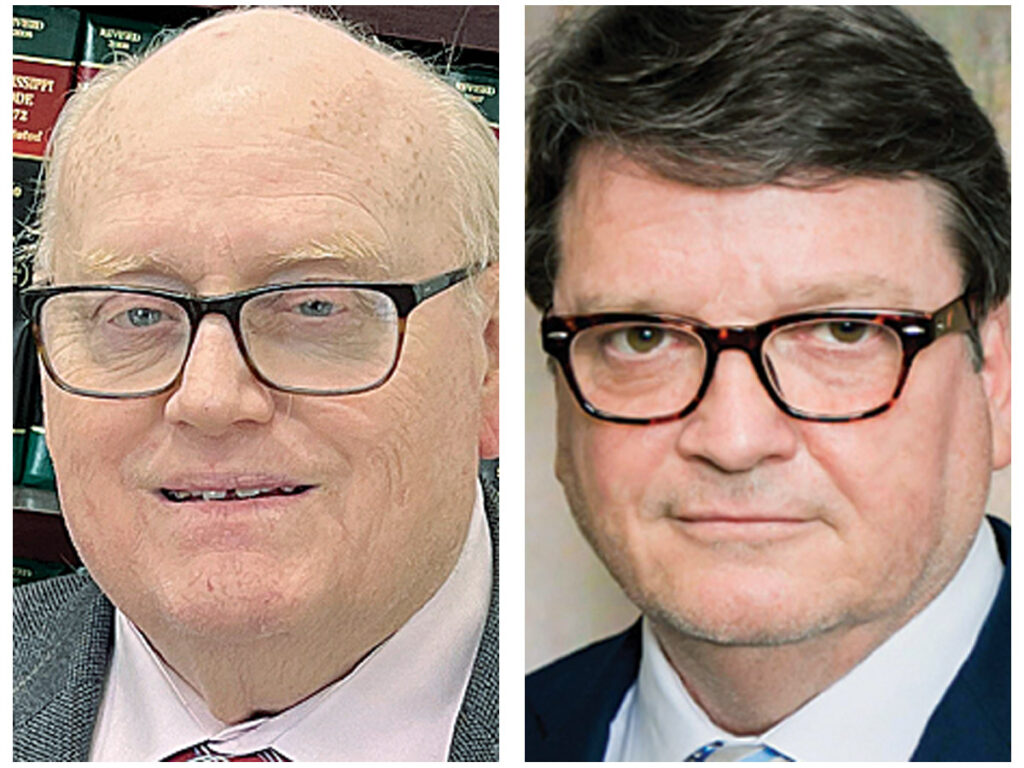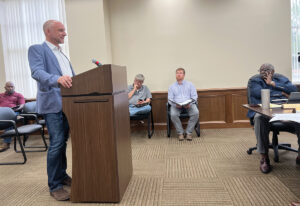The city of Columbus’ delayed audit report for Fiscal Year 2021 is on its way, and the FY2022 report is expected by September.
During the city council’s Tuesday meeting, Accountant Wanda Holley with Watkins, Ward and Stafford – an outside accounting firm that is preparing the city’s audits – told the council the FY2021 report should be ready by the council’s June 18 meeting.
Meanwhile, Chief Financial Officer Jim Brigham said the firm is finishing collecting documents from the city for FY2022 by the end of the month. Brigham said the 2022 report should be available by the end of this fiscal year.
The city’s fiscal year ends on Sept. 30. State law requires audits be finished no more than 12 months later.
Each year, entities in Mississippi that receive public money are subject to an audit. An outside auditing firm presents its findings to the entity, which then submits the report to all the necessary agencies, including the State Auditor’s Office.
Jacob Walters, communications director with the Mississippi Office of the State Auditor, told The Dispatch in a Thursday email there are consequences for municipalities that do not initiate efforts to comply with the law. He said the Department of Revenue is able to withhold all state funds going to the city until the audit is complete.
“If a municipality does not submit their annual audit, it could impact the city’s ability to issue debt and receive grants,” Walters said. “Not submitting an annual audit also means that the citizens don’t have a clear picture on if their local government is being ran efficiently and effectively.”
On Thursday, Brigham told The Dispatch the city has not experienced any legal issues because of non-compliance. Most cities in Mississippi, he said, are not entirely current on their audits, with other municipalities sitting between 2019 and 2023.
Still, Brigham said he is “not comfortable” with being behind on reports, and he hopes to catch up with the state report deadlines. Besides legal compliance, Brigham said other issues arise when a city is not up-to-date on audit reports.
Being current on audits, he said, helps to build trust with banks and investors when the city is looking for bonds or other project funding, along with building transparency between the city and its citizens.
“I think the audit is good for the citizens because it tells them that things are under control – or getting under control,” Brigham said. “For me, and for the staff up here, it’s kind of a road map.”
How did the city get here?
Brigham said the delays in the annual audits were caused by a few things, including previous embezzlement and weak bookkeeping.
In 2020, former city CFO Milton Rawle was arrested on charges of embezzling $288,000 from the city between 2016 to 2018. The missing funds were revealed by the FY2018 audit report.
Deliah Vaughn then served as CFO from May 2019 to September 2021 before leaving for another job in West Point. A few months went by with the position vacant until Brigham took over as CFO in April 2022.
Finding records that were managed, and sometimes mismanaged, by those who came before him have made it more difficult for Brigham and other city officials to catch up with audit deadlines, he said.
“I was going back and putting together a puzzle, because I could see where we got funds, but how they were used and where they were spent, all of that was a nightmare to put together,” Brigham said.
The FY2021 and FY2022 audits will also include findings from before his time, Brigham said. FY2021’s audit, which he reviewed earlier this week before Holley appeared to the council, still includes some holdover issues from previous years, he said, though they should start to disappear from the audits over time.
A few issues from the 2018, 2019 and 2020 audits, Brigham said, like mismanaged landfill receipts, an inadequate fixed assets ledger and reconciliation of bank accounts will appear again in the 2021 audit.
Holley did not comment on follow up questions from The Dispatch concerning the FY2021 audit, citing client confidentiality.
How is the city fixing it?
By the FY2023 audit, Brigham said, he expects the landfill receipts issue and the reconciliation issue to no longer be present. The fixed assets ledger is a longer-term issue, he said, but one he has been working on.
“All I want to do is fix it,” Brigham said. “Fix it for the citizens and fix it for the city. Get us financially stable and put the controls in to make sure people don’t steal. And then, whatever else I can do to make all of our department heads and departments more successful.”
During his tenure, Brigham said he has implemented new bookkeeping software and brought in new, more experienced staff members in the city’s finance department.
Mayor Keith Gaskin said the new professionals on staff will help Columbus “stay on top” of its audits and keep the city on a clear financial path to fix recurring issues.
“You can get recommendations to correct the findings that you had prior, but if you don’t have the qualified staff in place to make sure those changes are happening, then they’re going to reoccur,” Gaskin said. “That’s what we’ve been working on in this administration.”
Brigham said the FY2023 audit should be easier to put together, since documents should be easier to account for. He said it is not “out of the realm of possibility” to be caught up on audits by the end of the next fiscal year.
You can help your community
Quality, in-depth journalism is essential to a healthy community. The Dispatch brings you the most complete reporting and insightful commentary in the Golden Triangle, but we need your help to continue our efforts. In the past week, our reporters have posted 46 articles to cdispatch.com. Please consider subscribing to our website for only $2.30 per week to help support local journalism and our community.







